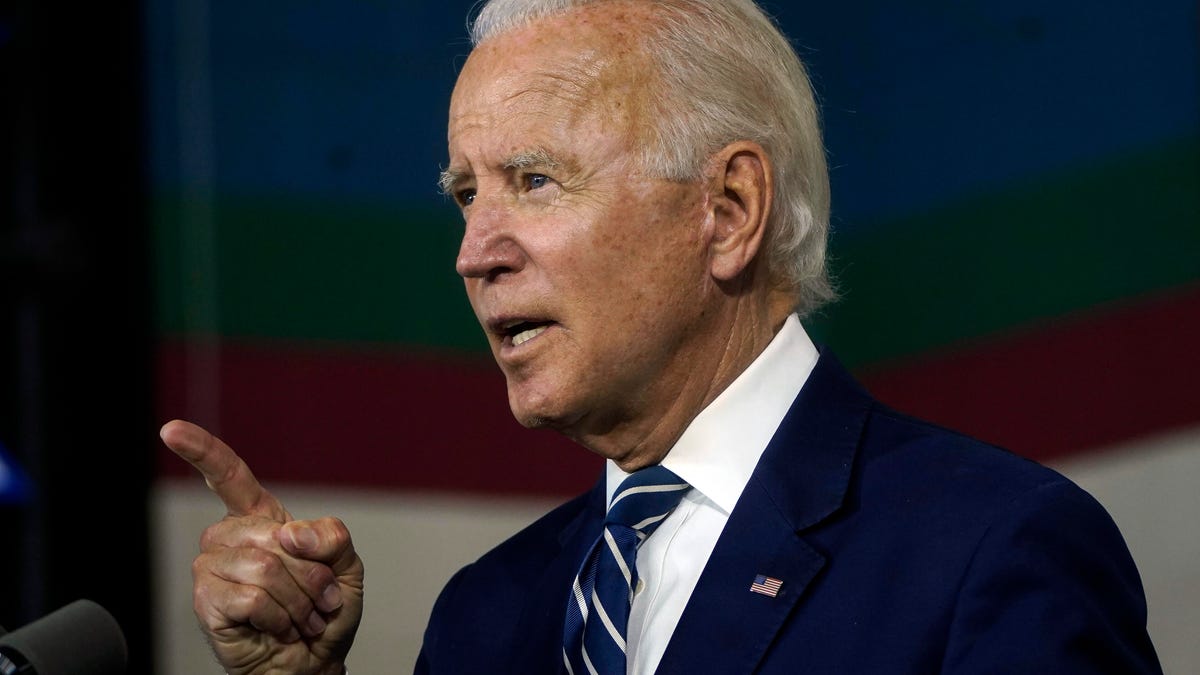 Why You Can Trust CNET
Why You Can Trust CNET Biden seeks return of net neutrality, greater competition among ISPs in executive order
ISPs have the advantage over consumers with few broadband options. President Biden's executive order encourages the FCC to level the playing field.

It's a basic economic principle that competition benefits the consumer, and it's that principle that serves as the foundation to US President Joe Biden's latest executive order.
In his 52nd executive order since taking office, Biden calls for increased regulation and accountability of major corporations to improve competition in a number of industries, ranging from agriculture to transportation. The list includes internet providers, as broadband remains a key point of focus in the president's domestic agenda.
Four of the order's parts relate specifically to broadband internet and call on the Federal Communications Commission to enact a number of measures to improve competition and transparency among all broadband providers. Here's a look at those measures and what they could mean for consumers:
Locating local internet providers
Prevent ISPs from making deals with landlords
When the FCC updated the broadband benchmark from 4 to 25Mbps, it became more apparent how limited broadband options are for many Americans, and not just for those living in rural broadband gaps. America's digital divide permeates the suburbs and even major cities as some 200 million people have only one or two viable broadband options, according to the FCC.
Partnerships between landlords and internet providers are a challenge when it comes to addressing and mitigating the digital divide. Not only do they eliminate options for residents -- often residents of low-income neighborhoods -- but they also discourage competing providers from extending service to these monopolized areas. Biden's order, if enacted by the FCC, would give residents the right to more internet options while effectively encouraging competing providers to extend service to new areas.
Locating local internet providers
Revive the 'Broadband Nutrition Label'
Even when consumers have the luxury of two or more internet options, comparison shopping is often muddled by the lack of transparent pricing. Excessive fees, hidden or otherwise, can inflate a customer's bill by as much as 40% compared with the advertised price. Furthermore, providers currently aren't required to disclose standard pricing, so providers like Optimum can keep customers in the dark as to what they'll be paying when their rates go up after 12 months. In other cases, as evidenced in a recent lawsuit filed against Frontier, customers simply aren't getting what they pay for.
Biden's order aims to address the lack of transparent pricing among broadband providers by reviving the "Broadband Nutrition Label," an effort initiated during the Obama administration but halted under President Donald Trump. If reenacted by the FCC, the proposal would require broadband providers to report their prices and subscription rates to the FCC along with speed and availability data. With this added information, the FCC can create a "simple label that provides basic information about the internet service offered so people can compare options."
Limit excessive early termination fees
Contract requirements and steep early termination fees are common on the broadband market. Satellite providers HughesNet and Viasat are prime examples of this practice as both come with two-year contracts and termination fees up to $200 or more for anyone who cancels early.
Biden's order encourages the FCC to limit excessive early termination fees, but it doesn't directly say what should be considered "excessive." Either way, limitations on early termination fees will give consumers more flexibility to change their internet provider or plan when they need or want to, not when a contract and a looming termination fee allow for it.
Restore net neutrality rules
In 2017, the Trump administration repealed net neutrality protections enacted during the Obama administration, which once again allowed ISPs to slow internet access at their discretion.
Much of the Republican Party doubled down on that stance prior to the 2020 election, but Biden's win and subsequent naming of Jessica Rosenworcel as interim FCC chair could pave the way for a swift reinstatement of net neutrality. In this executive order, Biden specifically encourages the FCC to restore net neutrality, which would once again prohibit ISPs from intentionally blocking or slowing a customer's internet service.
Biden's order puts the ball in the FCC's court
Though none of the measures is specifically binding, each one does place significant pressure on the FCC to take action and increase accountability and transparency among ISPs. Regardless of when or if the FCC will act on any of Biden's proposals, the executive order gives consumers struggling to find a workable, reasonably priced internet connection at home a glimmer of hope that changes could be in the works -- but whether regulatory action follows remains to be seen.

